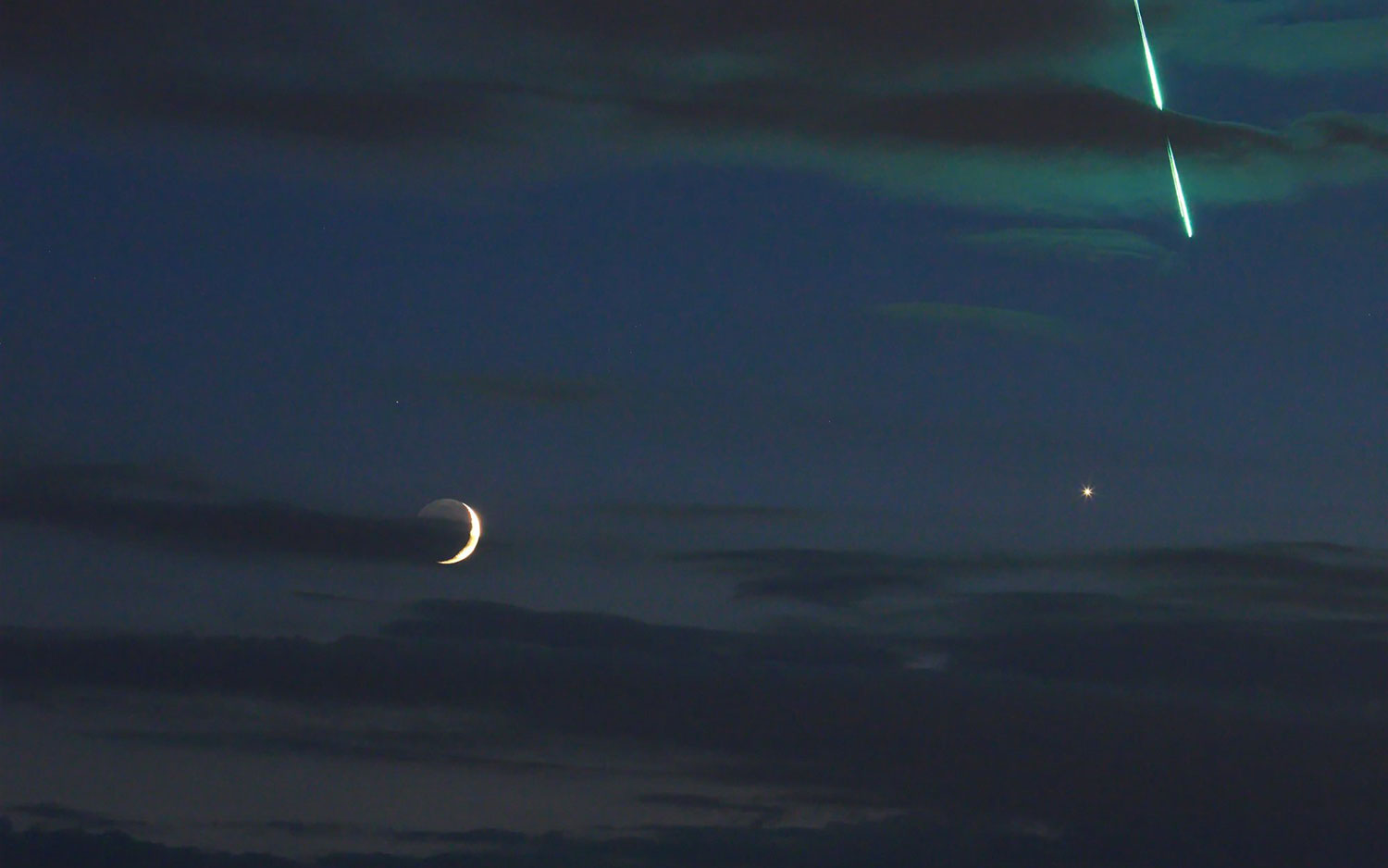Whoa! Watch This Fireball Blaze Over a Foo Fighters Concert in the Netherlands
A brilliant fireball brought some out-of-this-world fireworks to a Foo Fighters concert in the Netherlands on Saturday (June 16).
While the rock band was performing at the Pinkpop Festival in the town of Landgraaf, the bright-green meteor came plummeting through the atmosphere at 11:11 p.m. local time (5:11 p.m. EDT, 2111 GMT), in the final moments of a drum solo by band member Taylor Hawkins.
One festival attendee who was using his smartphone to record the show from the crowd managed to capture the meteor on camera. In the video, you can see a bright-green light flash in the night sky before the glowing light peters out behind the stage. [How to See the Best Meteor Showers of 2018]

Pinkpop partygoers were not the only people who were treated to this stunning celestial sight. More than 170 sightings from around the region were reported to the International Meteor Organization, which states that the fireball "was widely observed from Belgium, the Netherlands, Germany, Luxembourg, Spain, Switzerland, United Kingdom, and France."
"A bright #fireball lit up the night sky over Belgium on Saturday, June 16, 2018, 21:11 UT," astrophotographer Uwe Reichert tweeted along with a stunning photo of the meteor, Venus and the waxing crescent moon. "I caught it with my camera when I imaged the conjunction of the 3-day old Moon and Venus." In a zoomed-in view of Reichert's photo, you can see the space rock breaking into fragments as it burns up in the atmosphere.
All-sky cameras at the Fireball Recovery and InterPlanetary Observation Network, a meteor-spotting collaboration founded by France's National Research Agency, also caught sight of the fireball. Four all-sky cameras stationed around France saw the fireball, but the best view came from the camera in Charleville-Mézières, a town in northern France.
Fireballs happen when a very large meteor splatters on its way through the atmosphere, creating a big, bright flash. This fireball wasn't associated with any meteor showers; the next meteor showers will be the Southern Delta Aquarids and the Alpha Capricornids, both of which peak at the end of July, according to the American Meteor Society's calendar.
Get the Space.com Newsletter
Breaking space news, the latest updates on rocket launches, skywatching events and more!
Email Hanneke Weitering at hweitering@space.com or follow her @hannekescience. Follow us @Spacedotcom, Facebook and Google+. Original article on Space.com.
Join our Space Forums to keep talking space on the latest missions, night sky and more! And if you have a news tip, correction or comment, let us know at: community@space.com.

Hanneke Weitering is a multimedia journalist in the Pacific Northwest reporting on the future of aviation at FutureFlight.aero and Aviation International News and was previously the Editor for Spaceflight and Astronomy news here at Space.com. As an editor with over 10 years of experience in science journalism she has previously written for Scholastic Classroom Magazines, MedPage Today and The Joint Institute for Computational Sciences at Oak Ridge National Laboratory. After studying physics at the University of Tennessee in her hometown of Knoxville, she earned her graduate degree in Science, Health and Environmental Reporting (SHERP) from New York University. Hanneke joined the Space.com team in 2016 as a staff writer and producer, covering topics including spaceflight and astronomy. She currently lives in Seattle, home of the Space Needle, with her cat and two snakes. In her spare time, Hanneke enjoys exploring the Rocky Mountains, basking in nature and looking for dark skies to gaze at the cosmos.









